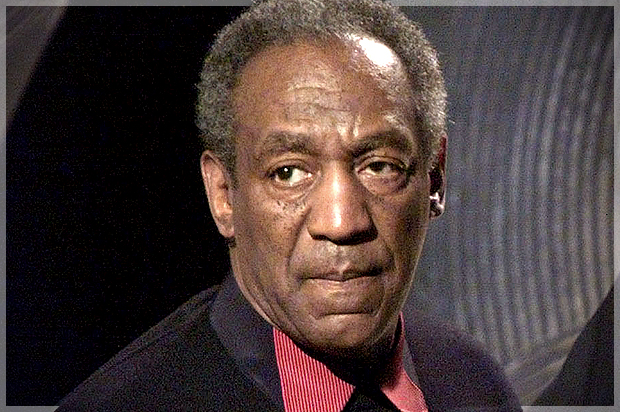Running alongside the disgust over the sexual assault allegations against Bill Cosby has been confusion: How could a pioneering comedian, jazz advocate and the inventor of “Fat Albert” be a predator who purportedly drugged and raped women, year after year, without much public discussion? Why and how could this kind of behavior go on and on and on?
There’s no way to avoid the fact that Cosby benefited from a certain kind of liberal, optimistic, Jackie Robinson-like narrative. “One of the reasons that Bill Cosby has been a beloved American comedian for six decades is that he offered one of the most soothing versions of the story of race in America,” Rebecca Traister wrote in The New Republic. “He was a history-making entertainer whose successes emblematized racial progress within the entertainment industry. He was the first African American man to land a leading role on primetime television drama in ‘I Spy’; Cosby had a doctorate in education, and brought the stories of black city kids to television with ‘Fat Albert.’ ” How could someone like this be guilty of all these unpleasant charges?
But he wasn’t just an uplifting black hero, he was also a moralist and scold, and in this way he fits in squarely with the decade that launched “The Cosby Show” and solidified his entertainment legacy. The story of Cosby’s alleged crimes, and the way fans and journalists and law enforcement looked the other way, reads just a bit like Bret Easton Ellis’s “American Psycho,” the story of a handsome Wall Street investment banker, circa late-’80s, who tortures women. In both cases, wealth, power and presumed respectability provided a shield.
The 1980s, after all, was the decade where the country was trying to pick itself up from the loss of faith of the era that had preceded it. Instead of reflecting on what race riots, the Vietnam War, Watergate, the oil crisis, and the faltering of the postwar boom meant – trying to come to terms with a new era for the nation, with a different place on the world stage – we chose a different course. One of the things we chose was a return to the strict father – which cognitive linguist George Lakoff calls the basis of the conservative worldview – and a new kind of Christian moralism. The Moral Majority – Jerry Falwell got it going in the late-‘70s with his “I Love America” rallies – became a dominant political force in the ‘80s. We imagined ourself a heroic, exceptional nation returning, after interruption, to our natural innocence.
And both of these strains, the secular and the Christian, came together in the spirit of Cosby’s Dr. Huxtable – whose sternness was played for laughs — as surely as they did in the Reagan White House. While Nancy Reagan told us “Just Say No” to drugs, young Republicans in the rapidly expanding financial sector were snorting their salaries up their noses. (It wasn’t just investment bankers: “The ’80s were fun, a party,” Whoopi Goldberg said in response to the new revelations from Cosby’s testimony, adding that “clearly they weren’t fun for everybody.”)
Drug czar William Bennett scolded Americans about not being virtuous enough – doubling down on the War on Drugs – despite what would become a multi-million dollar Vegas gambling habit. Reagan himself, another Respectable Father, spoke sternly about law and order while overseeing the sale of weapons to Iran and funneling the money to Nicaraguan contras, breaking all kinds of laws in the process. There have always been hypocrisy and moralism, in the United States and elsewhere, but the ‘80s served as a high-water mark. (And moralistic hypocrites did not exactly die out: Think of all the homophobic evangelicals who end up being gay themselves.)
Cosby himself – and not just his television alter ego – took the moralism and uprightness even further as began publicly scolding young black men on how they needed to live their lives. He might be a bit tough on them, some figured, but Cosby was a law-abiding guy concerned about public safety! How could he be responsible for any of this stuff they’re saying about him?
Since the floodgates on the Cosby issue broke late last year, there have been a number of chilling stories floating around from women frustrated from years of being ignored. One comes from Barbara Bowman, who writes in the Washington Post about how “Cosby won my trust as a 17-year-old aspiring actress in 1985, brainwashed me into viewing him as a father figure, and then assaulted me multiple times.” The headline: “Bill Cosby raped me. Why did it take people 30 years to believe my story?”
Again, this kind of thing is inexplicable. But it makes a bit more sense when we think of how much powerful men who wrapped themselves in moralism got away with in the ‘80s and how long it took us to wake up to their nonsense. Is it Reagan’s fault? Is the ‘80s to blame for Cosby’s own admission that he gave women drugs with the goal of sexually violating them? Of course not. But the atmosphere of moral uprightness and ‘80s-style fatherly bromides made it harder for us to see what was going on.

